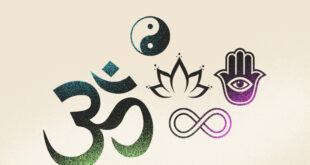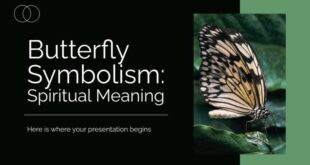Reading is better than watching a movie because it stimulates the imagination and allows for personal interpretation. In today’s fast-paced digital world, where movies and TV shows dominate our leisure time, it’s easy to overlook the many benefits that reading offers.
Unlike movies, reading engages the mind in a way that encourages active participation and creativity. When we read, we visualize the characters and scenes, immersing ourselves in the story and forming our own mental images. This process sparks our imagination, fostering a deeper connection to the narrative.
Additionally, reading allows for personal interpretation, as each reader brings their own experiences and perspectives to the text, creating a unique and individualized experience. So, next time you’re torn between watching a movie or picking up a book, consider the enriching and imaginative world that reading offers.
Benefits Of Reading
Reading is a cherished activity that has withstood the test of time. It not only allows us to escape into different worlds and explore diverse perspectives, but it also provides numerous benefits that enrich our lives. From expanding our imagination and creativity to enhancing our empathy and emotional intelligence, let’s dive into the multifaceted advantages of reading.
Expanding Imagination And Creativity
Through reading, we unlock the doors to boundless realms of imagination and creativity. Unlike movies, which present visual interpretations, books stimulate our minds to conjure up vivid images and envision settings, characters, and scenarios in our own unique way. The absence of visual cues leaves room for our imagination to run wild, forming connections and enabling us to visualize the story in incredible detail. By exercising our creative muscles, reading not only entertains but also fosters original thinking and imagination.
Development Of Critical Thinking Skills
Reading is a powerful tool for developing critical thinking skills. As we immerse ourselves in a story, we analyze and interpret characters’ motives, decipher intricate plot lines, and make connections between different ideas. We engage with the text, questioning, analyzing, and evaluating the information presented. This process of active reading cultivates our ability to think critically and logically, encouraging us to examine various perspectives and develop informed opinions.
Increased Vocabulary And Language Proficiency
Regular reading is a fantastic way to expand our vocabulary and improve our language proficiency. Whether it’s encountering new words in a novel or exploring different writing styles, reading exposes us to diverse linguistic patterns and word choices. As we come across unfamiliar words, we learn their meanings through context and gradually incorporate them into our own vocabulary. With a richer lexicon at our disposal, we can express ourselves more precisely and effectively in both written and spoken communication.
Improving Focus And Concentration
Reading requires active engagement and focused attention. In a world filled with constant distractions, delving into a book enables us to develop our ability to concentrate and maintain focus for extended periods. As we devote ourselves to a story, we train our minds to filter out external disruptions and immerse ourselves entirely in the narrative. This practice strengthens our concentration skills, which can transfer to other areas of life, boosting productivity and mental resilience.
Enhancing Empathy And Emotional Intelligence
One of the most profound benefits of reading is its ability to enhance empathy and emotional intelligence. Stories provide glimpses into the lives of diverse characters, allowing us to understand their perspectives, struggles, and emotions. Through these experiences, we develop empathy, the capacity to relate to and understand others’ feelings. By immersing ourselves in different storylines and characters, we gain a deeper understanding of human emotions, learning to navigate complex social interactions and fostering our emotional intelligence.
Intellectual Stimulation And Cognitive Benefits
Engaging in the act of reading offers immense intellectual stimulation and cognitive benefits, allowing our mind to delve into the depths of imagination and critical thinking. Unlike watching movies, reading requires active participation from the readers, providing an opportunity for mental growth and exploration.
Engagement Of The Mind
Reading engages the mind in ways that movies simply cannot. When you read a book, you become an active participant, creating vivid images and characters in your mind. It sparks our imagination, encouraging us to visualize the scenes, characters, and settings described in the text. As we read, our minds are fully focused, absorbing every detail and nuance, enabling a deeper connection with the story being told.
The act of reading demands concentration and mental effort. It requires us to envision characters and settings, making connections between events, and immersing ourselves in the narrative. This level of mental engagement keeps our brain active, enhancing our cognitive abilities and mental agility.
Opportunity For Deep Analysis And Interpretation
One of the distinctive advantages of reading over watching movies is the freedom it offers for deep analysis and interpretation. Books are often layered with symbolism, themes, and complex narratives that invite readers to explore their meanings and implications.
As we read, we have the luxury of immersing ourselves in the author’s words, pondering over the underlying messages, and reflecting on the intricacies of the story. We can take our time to pause, re-read, or even annotate parts that strike a chord with us. This level of engagement allows for a profound understanding and connection with the material, something that movies often struggle to achieve within their limited time frame.
Development Of Analytical And Problem-solving Skills
Reading stimulates our analytical and problem-solving skills, which are crucial in our daily lives. As we navigate through the pages of a book, we encounter obstacles, conflicts, and dilemmas that require mental processing and critical thinking.
By analyzing characters’ motivations, deciphering complex plot lines, and anticipating outcomes, reading assists in honing our analytical skills. It trains our minds to think critically, identify patterns, and draw logical conclusions. These intellectual exercises foster the growth of our problem-solving abilities, developing a sharper and more innovative mind.
Moreover, books often present scenarios that require readers to engage in empathy, seeing the world from different perspectives. This helps us develop a wider range of cognitive skills, including emotional intelligence and the ability to understand and empathize with others.
Overall, the intellectual stimulation and cognitive benefits of reading go far beyond the mere entertainment value of movies. Reading engages our minds, nurtures our imaginations, and sharpens our intellectual faculties, making it a worthy endeavor for self-improvement and personal growth.
Emotional Engagement And Personal Connection
Reading offers a deeper emotional engagement and personal connection compared to watching a movie, as it allows the reader to create their own mental images and connect with the characters on a more intimate level. This immersive experience fosters imagination and cognitive development, making reading a superior choice for those seeking a truly captivating and enriching experience.
Building A Personal Connection With Characters
One of the most compelling reasons why reading is better than watching a movie is the ability to build a personal connection with the characters. When we read a book, we have the opportunity to delve into the thoughts, emotions, and motivations of the characters on a much deeper level. Through vivid descriptions and nuanced details, authors create multi-dimensional characters that come to life in our imaginations. We can relate to their struggles, share in their triumphs, and even experience their vulnerabilities. This personal connection allows us to develop a stronger empathy towards the characters, fostering a deeper emotional engagement with the story.
Emotional Engagement Through Subjective Interpretation
Reading also offers the unique advantage of subjective interpretation, allowing readers to experience a story in their own unique way. Unlike a movie, where visuals and sounds are predetermined, reading provides readers with the freedom to imagine the story world according to their own imagination. This subjective interpretation can add an extra layer of emotional engagement as readers are encouraged to actively participate in the story. Each reader may envision the characters, the settings, and the events differently, resulting in a deeply personal and profound connection to the narrative.
Empowering Readers’ Emotions And Perspectives
Another significant aspect of reading is the ability to empower readers’ emotions and perspectives. Through a well-crafted narrative, authors have the power to evoke a range of emotions within their readers – joy, sadness, excitement, fear, and everything in between. As readers navigate through the highs and lows of a story, they become emotionally invested, often finding their own experiences mirrored in the pages. This emotional connection not only makes the reading experience more immersive but also allows readers to explore different perspectives and expand their worldview.
Books have the power to challenge our preconceived notions, provoke introspection, and spark empathy towards diverse experiences. In conclusion, reading offers a distinct advantage over watching movies when it comes to emotional engagement and personal connection.
By building a personal connection with characters, allowing subjective interpretation, and empowering readers’ emotions and perspectives, books create an unparalleled immersive experience. So, the next time you have the choice between picking up a book or watching a movie adaptation, consider the rich emotional journey that awaits within the pages of a well-written novel.
Depth And Detail In Storytelling
When it comes to storytelling, reading offers a depth and detail that is unmatched by watching a movie. The written word has the power to transport us to new worlds, evoke strong emotions, and explore complex themes and ideas. In this digital age, where movies and TV shows dominate our screens, it’s important to remember the unique and irreplaceable experience of immersing ourselves in a book.
Unlimited Storytelling Possibilities
Reading opens up a world of unlimited storytelling possibilities. Unlike movies, where visual effects and time constraints limit the narrative, books are not bound by these restrictions. Authors have the freedom to create intricate plotlines, complex characters, and richly detailed settings, taking readers on a journey that can span hundreds of pages. Whether it’s a fantasy realm, a historical period, or a dystopian future, books allow us to fully immerse ourselves in the story and imagine it in our own unique way.
Ability To Explore Complex Themes And Ideas
Books provide a platform for exploring complex themes and ideas in a way that movies often struggle to achieve. Through the written word, authors can delve deep into the nuances of human nature, societal issues, and philosophical concepts. Reading allows us to ponder on these ideas at our own pace, to re-read passages that strike a chord, and to engage in intellectual reflection. The process of reading encourages critical thinking and fosters a deeper understanding of the subject matter.
Availability Of Inner Thoughts And Emotions Of Characters
One of the distinguishing features of books is their ability to grant us access to the inner thoughts and emotions of characters. While movies rely on visual cues and dialogue, books can provide much more insight into the minds of the protagonists. By delving into their internal monologues, we gain a deeper understanding of their motivations, fears, and desires. This not only enhances our connection with the characters but also allows us to empathize with their experiences on a more profound level.
Flexibility And Freedom Of Interpretation
When it comes to the debate between reading and watching movies, one of the major advantages of reading is the flexibility and freedom of interpretation it offers. Unlike movies, which present a visual narrative that leaves little to the imagination, reading allows room for personal imagination and visualization. With books, the story unfolds in the reader’s mind, giving them the ability to create unique images that are perfectly tailored to their own preferences and imagination.
Room For Personal Imagination And Visualization
Reading not only stimulates our creativity but also engages our minds in a way that movies cannot. When we read a book, we are actively involved in the process of bringing the story to life. Every page is an opportunity to imagine and visualize the characters, settings, and events described by the author. This room for personal interpretation enables readers to connect with the story on a deeper level, making it a more immersive and fulfilling experience.
Ability To Create Unique Images In One’s Mind
Unlike movies that present a curated visual representation of the story, reading allows us to create our own unique images in our minds. Each reader has their own way of envisioning characters and settings, giving rise to a diverse range of interpretations. This not only makes the reading experience more personal but also sparks our imagination and encourages us to think critically about the details of the story. By engaging our visual faculties, reading stimulates our creativity and allows us to be active participants in the storytelling process.
Freedom To Interpret The Story In A Personalized Way
One of the greatest joys of reading is the freedom it provides for individual interpretation. While movies often present a singular, fixed narrative, reading allows each person to interpret the story in their own unique way. With books, readers have the freedom to assign their own meanings, values, and significance to the events and characters. This personalized interpretation ensures that every reading experience is special and allows readers to form a deeper connection with the story.
In conclusion, the flexibility and freedom of interpretation provided by reading makes it a superior choice to watching movies. The ability to create unique images in one’s mind, coupled with the freedom to personalize the story’s meaning, allows reading to engage our imagination, stimulate creativity, and provide a more enriching and rewarding experience overall.
Frequently Asked Questions Of Why Is Reading Better Than Watching A Movie?
Why Is Reading Better Than Watching A Movie?
Reading allows you to imagine and engage your mind, leading to better creativity and critical thinking. It improves vocabulary, language skills, and concentration. Moreover, books offer detailed content and in-depth exploration of characters and stories, providing a more immersive experience than movies.
How Does Reading Benefit The Brain?
Reading stimulates our cognitive functions, enhancing memory and problem-solving skills. It promotes brain connectivity and encourages the development of complex thinking abilities. Additionally, reading reduces stress, improves focus, and can even delay cognitive decline as we age.
Can Reading Books Make You A Better Writer?
Reading books exposes you to various writing styles, expands your vocabulary, and improves your sentence structure. It helps you understand the proper use of grammar and punctuation marks. By analyzing different authors’ techniques, you can develop your own unique writing voice and gain valuable insights into storytelling.
Conclusion
In essence, reading triumphs over watching a movie due to its inherent benefits. Through reading, we can delve deeper into characters’ thoughts, emotions, and motivations, fostering a more profound connection. Imagination is sparked, allowing us to create personalized visuals of the story unfolding.
Furthermore, reading enhances cognitive abilities, boosts vocabulary, and encourages critical thinking skills. So, grab a book and embark on a transformative journey that movies can never truly replicate.
 Samoyik Your Entertainment Partner
Samoyik Your Entertainment Partner




